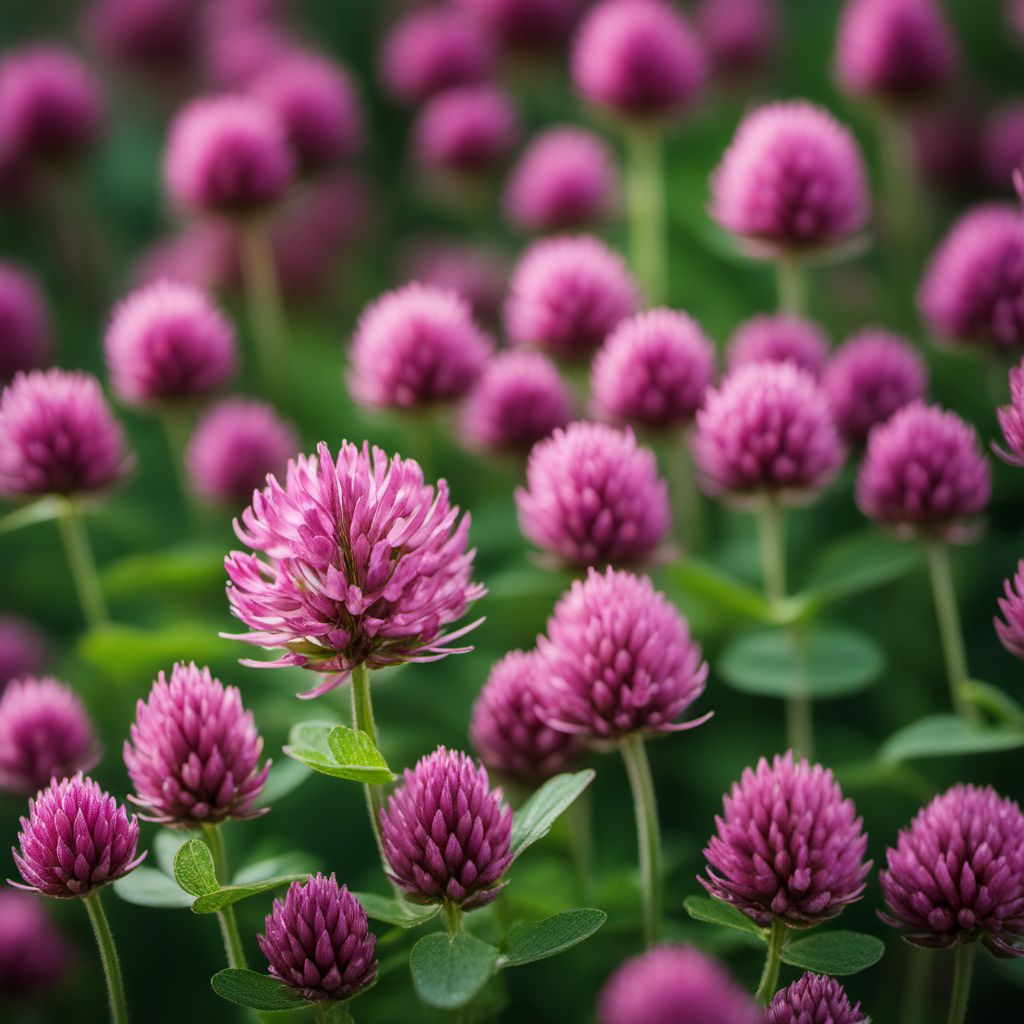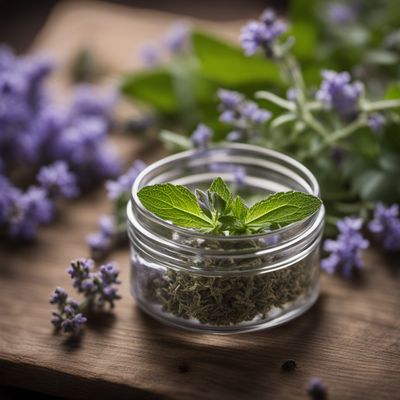
Ingredient
Red clover infusion leaves
The Floral Elixir: Discovering the Delicate Flavor of Red Clover
Red clover infusion leaves have a mild, slightly sweet, and floral taste, with a hint of earthiness. They have a soft and velvety texture, making them a delightful addition to teas, salads, soups, and desserts. These leaves are often used for their potential health benefits and are known for their calming properties.
Origins and history
Red clover is native to Europe, Western Asia, and Northwest Africa. It has a long history of use in traditional medicine and herbal remedies. Red clover infusion leaves have been consumed for centuries as a natural remedy for various ailments, including respiratory issues, menopausal symptoms, and skin conditions. They are also valued for their potential estrogen-like effects.
Nutritional information
Red clover infusion leaves are a good source of vitamins, minerals, and antioxidants. They contain compounds called isoflavones, which have been studied for their potential health benefits, including reducing menopausal symptoms and improving cardiovascular health. However, it is important to note that red clover may interact with certain medications, so it is advisable to consult with a healthcare professional before consuming it in large amounts.
Allergens
Red clover infusion leaves may cause allergic reactions in some individuals, particularly those with a known allergy to legumes or other plants in the Fabaceae family. It is important to be cautious and avoid consumption if allergic symptoms occur.
How to select
When selecting red clover infusion leaves, look for fresh leaves that are vibrant in color and free from any signs of wilting or discoloration. Opt for organic leaves whenever possible to ensure they are free from pesticides or other contaminants. Store the leaves in an airtight container or resealable bag in a cool, dry place to maintain their freshness.
Storage recommendations
To preserve the flavor and quality of red clover infusion leaves, store them in an airtight container or resealable bag in a cool, dry place away from direct sunlight. Proper storage will help retain their delicate flavor and prevent them from becoming wilted or discolored.
How to produce
Red clover can be grown in gardens or containers by sowing the seeds in well-drained soil and providing them with adequate sunlight and water. It is a relatively easy plant to grow and can be harvested when the leaves are young and tender. Harvesting the leaves regularly promotes new growth and ensures a continuous supply of fresh leaves.
Preparation tips
Red clover infusion leaves can be used to make a soothing herbal tea by steeping them in hot water for a few minutes. They can also be added to salads, soups, or stews for a touch of floral flavor. Red clover leaves can be infused into syrups, jellies, or desserts to add a unique twist to sweet treats. Experiment with incorporating red clover leaves into your favorite recipes to discover new flavors.
Culinary uses
Red clover infusion leaves are commonly used to make herbal teas, which are enjoyed for their calming and soothing properties. They can also be used as a flavoring or garnish in salads, soups, and desserts. Red clover leaves are a popular ingredient in traditional herbal remedies and are valued for their potential health benefits.
Availability
Red clover is commonly found in Europe, Western Asia, and Northwest Africa. It is also cultivated in other regions, including North America and Australia. Red clover infusion leaves can be purchased from herbal stores, health food stores, or online retailers that specialize in herbal products.
More ingredients from this category » Browse all

Lemon myrtle infusion leaves
The Zesty Elixir: Lemon Myrtle Infusion Leaves

Common speedwell infusion leaves
The Healing Power of Common Speedwell

Hairy rupturewort infusion leaves
The Herbal Elixir: Unveiling the Magic of Hairy Rupturewort Infusion Leaves

Bilberry infusion leaves
The Berry's Brew

Catmint infusion leaves
The Soothing Herbal Elixir

Wild strawberry infusion leaves
The Delicate Essence of Wild Strawberry Infusion Leaves

Moldavian dragonhead infusion leaves
The Aromatic Elixir: Moldavian Dragonhead Infusion Leaves

Yarrow infusion leaves
The Herbal Elixir: Yarrow Infusion Leaves

Jiaogulan infusion leaves
"The Immortality Herb: Unlocking the Health Benefits of Jiaogulan Infusion Leaves"

Gymnema infusion leaves
The Sweet-Suppressing Herb

Smooth rupturewort infusion leaves
The Tranquil Herbal Elixir

Mullein infusion leaves
"Nature's Respiratory Remedy: Exploring the Benefits of Mullein Infusion Leaves"